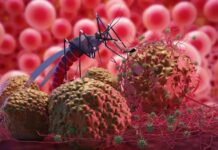In the subject of health consciousness, the cons of junk food consumption have long been documented. From cardiovascular risks to obesity, the detrimental effects on the body are well-established. However, emerging research now sheds light on a concerning aspect: the impact of high-fat, sugary diets on brain health, particularly memory function.
A recent study, spearheaded by neuroscientist Scott Kanoski and his team at the University of Southern California, dived into the lasting repercussions of junk food consumption on memory in rats. Feeding these rodents a diet rich in simple sugars and saturated fats from a young age, like human adolescence. The researchers uncovered enduring memory impairments that persisted into adulthood.

Disrupted Neurotransmitters
Central to this phenomenon is the disruption of acetylcholine, a critical neurotransmitter implicated in memory and learning processes. The consumption of unhealthy, processed foods appears to hinder acetylcholine function, leading to enduring memory deficits akin to those observed in neurodegenerative conditions like Alzheimer’s disease.
While the study’s findings are derived from animal models, parallels to human health are striking. Research linking Western-style diets to Alzheimer’s risk underscores the relevance of these findings to human populations. Moreover, the study highlights the potential long-term consequences of early-life dietary habits on cognitive function in adulthood.
Dietary Awareness
As the evidence mounts, a call for dietary awareness becomes ever more urgent. The prevalence of Western diets laden with sugary, fatty foods poses a significant threat to brain health, with implications extending beyond physical well-being. By understanding the intricate interplay between diet and brain function, individuals can make informed choices to safeguard cognitive vitality.
Future Directions
While the study offers crucial insights, unresolved questions linger. Variances in timing and gender underscore the complexities of dietary influence on brain function. Further research is found to exclude these nuances.

In navigating the junk food dilemma, the study serves as a poignant reminder of the profound impact of dietary choices on brain health. As we reveal the mechanisms underlying these effects, fostering a culture of dietary consciousness becomes paramount. Ultimately, it’s not just our bodies at stake, but the very essence of our cognitive vitality.
Stay tuned to Brandsynario for the latest news and updates.










































